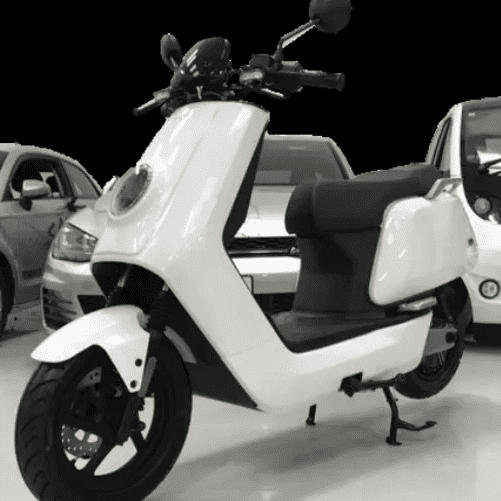Edition #7 | Environment Forward

Quick charge batteries, cargo ship kites, hemp concrete, and pop music…Happy Holidays!
Hi Y’all,
I hope everyone is having a wonderful holiday season! In this 7th Edition of Environment Forward, and the last of 2021, we are exploring some exciting innovations in decarbonization, including quick charging batteries, hemp-based concrete, and kites for cargo ships. We also explore how climate change is influencing pop music. I’m excited to see what 2022 has in store and look forward to continuing to share my perspectives in the New Year. I’d love to know what you’ve been reading lately, what you’re listening to, and what you’d like to see more of – be sure to drop me a line and let me know your thoughts. Cheers!
Batteries that charge in 90 seconds
Allotrope Energy has developed a novel lithium-carbon battery that leverages nanoporous carbon as a capacitor material. Allotrope Energy’s battery technology has been used in a battery-powered moped prototype that can recharge in 90 seconds. Lithium-carbon batteries have a high specific power and do not require cobalt or nickel, which are elements that pose environmental and supply chain challenges in the manufacture of other lithium-ion batteries. For now, the scale-up of lithium-carbon batteries to electric vehicles larger than mopeds seems unlikely but Allotrope Energy is exploring other applications in the maritime industry and vehicle charging stations. I’m excited for quick charge electric mopeds to hit the streets and for continued innovation in the battery space.
Image credit: Allotrope Energy via Canary Media
Kites for cargo ships
More than 10 billion metric tons of cargo each year are transported via maritime shipping, which accounts for more than 3% of global greenhouse gas emissions. Airseas is trying to tackle the emissions challenge of cargo ships via their giant kites, referred to as Seawings. The first Seawing, a 500 square meter kite is being deployed in the new year on the Ville de Bordeaux, a 154-meter-long ship that transports aircraft components across the Atlantic Ocean. The Ville de Bordeaux will undergo a six months trial period with the Seawing before full deployment. Airseas has plans to unfurl even larger 1,000-meter kites and anticipates their kites will reduce the ship's fuel consumption and greenhouse gas emissions by 20%.
Image credit: Airseas via Bloomberg
Concrete made from hemp
The concrete industry accounts for approximately 8% of global carbon emissions and has long been challenged to find ways to decarbonize given the widespread applications of concrete as a building material. The Pierre Chevet sports hall in France was built using hemp-based concrete, referred to as "hempcrete." While there are architectural and aesthetic challenges when using hemp-based concrete, the carbon benefits are significant. While hempcrete gives a more rustic finish, it has beneficial insulation properties that can reduce energy usage over time, helping to counterbalance the higher costs of hempcrete over traditional concrete. I'll be curious to see the role hemp plays in helping to decarbonize building materials.
Image credit: lemoal lemoal
Pop songs about climate change
The climate crisis has now been worked into the lyrics of pop music by the likes of Ariana Grande and Lorde. Grist explores the influence of climate change and severe weather events on the pop music genre through an analysis of several pop hits released in 2021. Give them a listen, but be prepared for some of the tunes to get stuck in your head.
Image credit: Tallie Robinson
Nicole Sullivan is the Climate Services Manager at CarbonBetter. When she's not working on sustainability reports and helping clients to decarbonize, she's busy reading about the environment or is outdoors exploring it. Connect with her on LinkedIn and drop her a line to let her know what you thought about these stories and share what you're reading.



